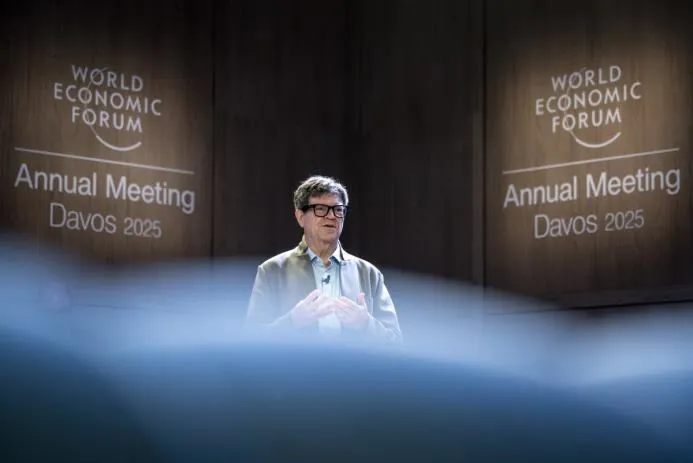 Click to zoom
Click to zoom
Introduction: A Turning Point in AI Research
Yann LeCun, a Turing Award winner and one of the architects behind modern deep learning, has announced he’s leaving Meta to found a startup focused on world-models. I won’t pretend this is just another executive move — it feels like one of those quiet pivots that later looks obvious. This could shift how foundational AI research, product-focused engineering, and agile startups interact. Learn more in our guide to Agentic Workflows.
Who is Yann LeCun and why his exit matters
If you’ve followed AI for a few years, LeCun’s fingerprints are everywhere: convolutional nets, representation learning, that mix of math and intuition people chase. When someone with that reputation leaves a major lab, it changes incentives. I’ve seen it before — a single high-profile departure pulls funding angles, sparks talent movement, and reframes which problems look fundable.
Why it matters:
- LeCun’s name draws attention — from investors, from top researchers, and from engineers who want creative freedom.
- A startup helmed by him can push high-risk, long-horizon experiments that product teams usually deprioritize.
- It highlights a real tension: foundational AI research versus product timelines. That tension is about incentives, not ideology.
What are "world-models" and why focus on them?
World-models are, bluntly, systems that try to build an internal map of how the world works: causal relations, object dynamics, social signals, and plans unfolding over time. Unlike LLMs that excel at next-token prediction, world-models are simulation-first — they imagine sequences of states and possible outcomes.
One quick mental model: an LLM completes a sentence; a world-model runs a mental simulation of kicking a ball and predicts the trajectory, interactions, and side effects. That difference matters a lot for robotics, safety-aware planning, and any agent that must act in the real world rather than merely chat about it.
What this means for Meta
Meta has been visibly rebalancing toward productized ML and scale. LeCun’s exit is not a single data point — it nudges the needle. Expect labs to re-evaluate mission statements; some researchers may leave for startups or academia, and others might accept a more engineering-focused remit.
Short-term effects to watch:
- Public reorganizations or hiring moves — Meta will likely amplify research roles that align with product timelines.
- Faster feature rollouts built on pragmatic model families (think: models optimized for deployment, latency, and safety-by-design).
- Potential acquisitions or partnerships as Meta seeks to replace lost deep-science capabilities.
Implications for research, industry, and users
For research
This could fragment big-tech dominance in foundational AI research. Independent labs and startups are well-placed to run creative, higher-risk experiments — shorter feedback loops, more freedom to publish, and different funding narratives. That diversity can be productive: more reproducibility, more competing paradigms, fewer monocultures.
For industry and competition
Talent fluidity will raise the bar for retention. Money helps, sure — but autonomy, access to compute, and a culture that tolerates long-shot work matter more to senior scientists. Investors are listening; expect more seed rounds pitched as "simulation-first" or "world-model" plays in 2025. That shift could tilt capital toward conceptual breakthroughs rather than pure product velocity.
For users and applications
If world-models mature, users will see systems that plan multi-step tasks, predict downstream consequences, and interact with the physical world in a far more nuanced way. That unlocks use cases in robotics, AR/VR simulations, and agentic assistants — but it also raises governance questions. Simulation-driven AI needs safety guardrails; internal models can be powerful and unpredictable. Learn more about practical agent designs in gpt-realtime Realtime API.
A small hypothetical: How a LeCun-led world-model might help a warehouse robot
Picture a warehouse robot rearranging fragile boxes. An LLM-based planner might produce a plausible sequence of steps. A world-model, though, runs an internal experiment: "If I nudge this box, will it tip the stack?" It simulates contact dynamics and selects a safer grasp. In practice, that reduces trial-and-error, accident rates, and downtime — and that’s not theoretical: simulation-first planning is already cutting real operational costs in early pilots.
What to watch next
- Formal announcement of LeCun’s startup — look for team, mission, and funding details.
- Preprints and papers from his group revealing architectures, training regimes, or novel simulation techniques.
- Meta’s public messaging — reorganized research priorities, or new hires to fill the gap.
- Investor activity: seed rounds and VC decks that explicitly mention "world-models" or "simulation-driven AI".
- Community signals: conference talks, collaborations with robotics labs, and open-source simulators gaining traction.
Relevant reading and sources
For reporting and background, see coverage from reliable outlets: AP News, Reuters, and an analysis piece: Gizmodo. For practical context on tooling and deployment, this guide is useful: Google AI Studio: A Practical Guide. And watch coverage from tech outlets like Ars Technica and TechStartups.
Final thoughts
This is more than one person leaving a company. It’s a signal about who gets to set the research agenda and how much risk companies will tolerate. From where I sit, meaningful breakthroughs usually need experimental space — teams that can fail fast, publish, and iterate without being crushed by quarterly metrics. If LeCun’s startup becomes that kind of fertile ground, it could change things for years.
Key takeaways:
- LeCun’s departure amplifies the debate between productization and deep science.
- World-models emphasize internal simulation and reasoning — great for robotics and planning.
- Expect more startups, investor interest, and talent mobility around simulation-first AI in 2025.
Questions worth asking next: Who joins LeCun? Will his team publish early and often? Can world-models reduce real-world trial-and-error for robots? Those answers will tell us whether this is a headline or a turning point.
Thanks for reading!
If you found this article helpful, share it with others